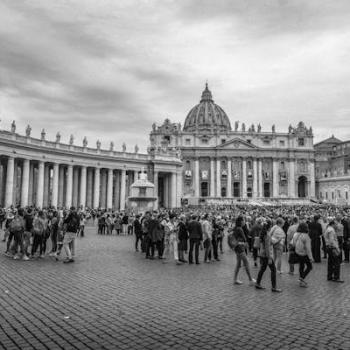Afterlife
By June Leifson
See this page in the original 1992 publication.
Latter-day Saints believe that life continues after the death of the mortal body and that death is but a separation of the physical body and the spirit. The spirits of all individuals, "whether they be good or evil, are taken home to that God who gave them life" (Alma 40:11). President Brigham Young said that the transition from death into the spirit world is "from a state of sorrow, grief, mourning, woe, misery, pain, anguish and disappointment into a state of existence, where I can enjoy life to the fullest extent; ...my spirit is set free; ...I go, I come, I do this, I do that; ...I am full of life, full of vigor, and I enjoy the presence of my heavenly Father" (JD 17:142). The desire, personality, and disposition that individuals develop, shape, and mold in this life will continue into the afterlife.
If individuals are evil in their hearts, their spirits will enter the spirit world intent upon doing evil; if individuals are good and strive to do the things of God, that disposition will also continue, only to a greater degree-learning, increasing, growing in grace and in knowledge of truth (see Brigham Young, JD 7:333). Amulek explained that the "same spirit which doth possess your bodies at the time that ye go out of this life, that same spirit will have power to possess your body in that eternal world" (Alma 34:34).
Life did not begin at mortal birth, nor will it end at mortal death. God's gift to all individuals is everlasting life. Every person will die physically; every person will receive a literal resurrection of the body and never die again.
Heaven
By Arthur Wallace
See this page in the original 1992 publication.
Significant meanings of the word "heaven" are (1) the place where God resides (Matt. 6:9; Alma 18:30), (2) the eternal dwelling place of the righteous in the hereafter (Matt. 6:20; 1 Pet. 1:4), and (3) the type of life enjoyed by heavenly beings. A desire for heaven -- to eventually live in a better world than the present one -- is the basis of a hope that motivates Latter-day Saints (cf. Ether 12:4; D&C 25:10).
Although the specific word "heaven" is regularly used in the day-to-day literature of the Church, it is not as frequently used as it no doubt would be if there were not substitute terms. The revealed nomenclature involving the hereafter in Latter-day scripture is precise in detailing the varied conditions that exist in the afterlife. Hence in LDS literature there are many words that refer to life beyond mortality, such as paradise, the Celestial Kingdom, the Terrestrial Kingdom, the Telestial Kingdom, or the degrees of glory.
In the future, this earth will be renewed and receive a paradisiacal glory (AofF 10; Isa. 65:17-25; D&C 88:25-26). This change of the earth will be associated with the millennial reign of the Savior, and the earth will eventually become a "new heaven and a new earth" (D&C 29:23). The earth will ultimately be "like unto crystal and will be a Urim and Thummim to the inhabitants who dwell thereon" (D&C 130:9). When this occurs, both the Father and the Son will rule over this planet and those who dwell upon it. This earth will be a heaven to its celestial inhabitants. Speaking of conditions of the future life, the Prophet Joseph Smith explained, "That same sociality which exists among us here will exist among us there, only it will be coupled with eternal glory, which glory we do not now enjoy" (D&C 130:2).
The doctrinal emphasis on the eternal nature of the family and the implementation of gospel principles into home and family relationships have frequently led leaders of the Church to characterize the faithful family as a foretaste of "heaven here on earth" (Monson, p. 69). [See also Afterlife; Kingdom of God: In Heaven.]




